In the Field of Health Policies and Humanitarian Aid Coordination
The Council of Arab Ministers of Health, established in 1976 as the first specialised ministerial council in the League of Arab States, serves as a cornerstone for joint Arab action in the health sector. Arab health ministers convene periodically to foster coordination, cooperation, and integration across various health-related domains, addressing shared challenges and devising appropriate solutions. The Council also plays a vital role in mobilising urgent medical and health assistance for member states during times of crisis—including disasters, wars, emergencies, and epidemics—while working to elevate public health awareness and promote Arab health initiatives.
Since its inception, the Council has spearheaded numerous initiatives, programmes, and strategies aimed at strengthening healthcare systems in the Arab world, including:
The Arab Council for Health Specialisations (established in 1978), a scientific and professional body dedicated to the training and qualification of highly skilled medical specialists through accredited centers across the region.
The Arab Authority for Blood Transfusion Services, created in March 1979 to oversee and develop safe and effective blood transfusion services throughout the Arab world.
The Arab Centre for Authoring and Translation of Health Sciences (established in 1980), which plays a crucial role in producing and translating medical and health literature into Arabic, contributing to scientific advancement in the region.
The Arab Health Committee for Emergency Preparedness and Response, founded in 2009 to support the Palestinian people following Israeli aggression. In response to the evolving humanitarian landscape, the Council reactivated the Committee in 2024 to strengthen the capacities of national health ministries in managing crises. This includes training medical personnel, developing risk assessment protocols, and implementing comprehensive emergency response measures.
The Arab Strategy for Access to Public Health Services in the Context of Refugee and Displacement in the Arab Region, which seeks to enhance health outcomes and prevent disease among refugees, displaced persons, and asylum seekers. The strategy embraces a universal health coverage framework aligned with the 2030 Sustainable Development Goals, aiming to address the global oversight in failing to designate a specific target for refugee health.
Beyond policy coordination, the League of Arab States plays a critical role in humanitarian aid coordination. In times of conflict, natural disaster, or humanitarian crisis, the League works in concert with competent national and international authorities to secure essential humanitarian assistance for affected populations. This is conducted in accordance with the principles and values enshrined in the League's Charter, international humanitarian law, and human rights conventions—ensuring impartiality and non-discrimination based on race, religion, nationality, or political affiliation.
Furthermore, the League of Arab States has established an extensive network of partnerships with international, regional, and non-governmental organisations active in the humanitarian field. These partnerships enable effective cooperation, coordination, and the exchange of expertise and information, thereby contributing to the development of robust systems for the delivery and governance of humanitarian assistance across the Arab region, such as the League's assistance to the Republic of Yemen to help combat the spread of the cholera epidemic in 2017.
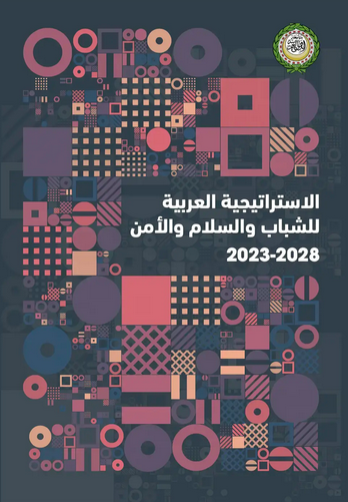
Youth Care and Support for the Sports Sector
The League of Arab States has long recognised the pivotal role of youth and sports in shaping cohesive, dynamic, and forward-looking Arab societies. Its engagement in this field dates back to 26 July 1953, with the organisation of the first Arab Sports Championship under the auspices of His Excellency the then Secretary-General, Abdul Rahman Azzam. Since then, the League of Arab States has consistently supported and organised major sporting events, including the Arab Sports Championship hosted by the People's Democratic Republic of Algeria in 2023, and the upcoming edition scheduled to take place in the Kingdom of Saudi Arabia in 2027.
In reaffirmation of its unwavering commitment to youth empowerment and sports development, and in pursuit of unified Arab efforts to enhance the well-being and potential of future generations, the League of Arab States established the Council of Arab Youth and Sports Ministers in 1977. The Council serves as a central body for coordinating youth and sports policies across member states. Among its significant accomplishments is the establishment of a dedicated fund operating under its authority, which provides financial support and grants for youth and sports initiatives throughout the Arab world. The fund also incentivises member states to host regional championships and youth-oriented activities.
A key milestone in this regard is the Arab Strategy for Youth, Peace, and Security (2023–2028), adopted in 2023. This strategy was developed through a unique participatory approach, in collaboration with a range of United Nations bodies—including the UN Liaison Office to the League of Arab States, the Department of Political and Peacebuilding Affairs, UNDP, UNFPA—as well as the Folke Bernadotte Academy. Central to this process was the engagement of Arab youth, whose voices, needs, and aspirations informed the formulation of the strategy. The initiative also drew on insights from youth ministries in member states and subject-matter experts, ensuring an inclusive, evidence-based, and youth-driven framework.
At the international level, the League of Arab States places great emphasis on intercultural dialogue and global engagement through youth forums. It regularly convenes initiatives such as the Arab-European Youth Forum and the Arab-Chinese Youth Development Forum, which aim to foster mutual understanding, exchange of experiences, and cross-cultural cooperation. These platforms empower young people by refining their talents, enhancing their skills, and providing opportunities for innovation and leadership. Furthermore, they contribute to reshaping global narratives about Arab youth, challenging prevailing stereotypes, and affirming the active, creative, and transformative role of youth in Arab societies and beyond.
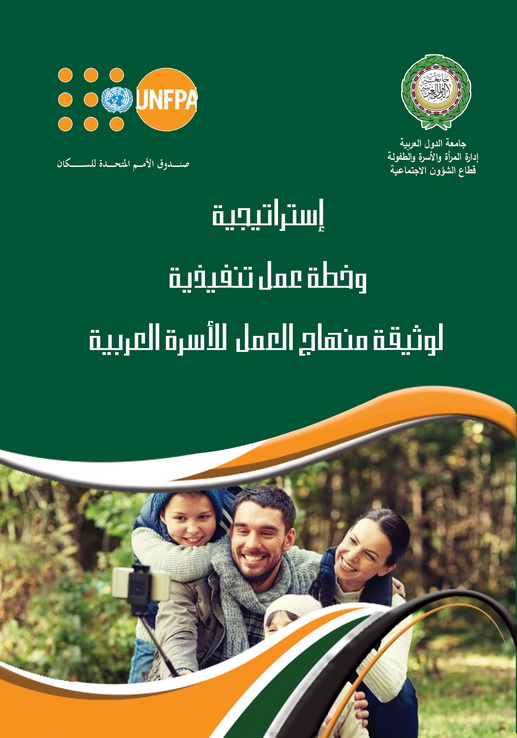
Support for the Arab Family
In recognition of the central role of the family as the cornerstone of Arab society and the primary incubator of values, identity, and resilience, the Council of Arab Ministers of Social Affairs has adopted a series of strategic documents and initiatives aimed at safeguarding the rights of Arab families and children. These efforts are particularly significant given the mounting challenges facing the region, where women and children have borne the brunt of ongoing instability, displacement, and conflict.
Among the most notable frameworks and instruments adopted in this field are:
The Comprehensive Arab Plan to Guarantee the Rights of Children in Natural Disasters (2015): Developed in collaboration with Save the Children, this plan provides a rights-based approach to protecting children during crises, ensuring their safety, education, and psychological well-being.
The Comprehensive Plan to Reduce the Recruitment of Children in Armed and Terrorist Conflicts (2021): A decisive step towards shielding Arab children from exploitation in violent settings, this plan outlines preventive mechanisms and rehabilitation measures.
The Guide to Correcting Misconceptions, Concepts, and Misrepresentations of Children in the Media (2021): This guide aims to promote accurate and respectful portrayals of children in the media, countering harmful stereotypes and fostering a media environment that supports children's dignity and development.
The Arab Strategy to Reduce Domestic Violence and Strengthen Family Cohesion (2020): This strategy addresses the root causes of domestic violence and promotes preventive, protective, and rehabilitative measures to ensure safe and nurturing family environments.
The Arab Strategy for the Family and its Implementation Action Plan (2021): A comprehensive framework to enhance the role of the family in achieving social stability, advancing development goals, and promoting intergenerational solidarity.
The Family Guidance and Counseling Strategy (2021): This strategy establishes standards and mechanisms for offering support to families through counseling services, focusing on family cohesion, mental health, and conflict resolution.
The Arab Strategy for the Protection of Children in Refugee Situations in the Arab Region: Developed in cooperation with the United Nations High Commissioner for Refugees (UNHCR), this strategy addresses the vulnerabilities of refugee children, ensuring access to essential services and protection mechanisms.
The Arab Declaration on Belonging and Legal Identity (2023): This declaration reaffirms the right of every child to a legal identity and a sense of belonging, laying the foundation for access to rights, services, and full participation in society.
Guidance Note on Mental Health and Psychosocial Support for Refugee and Other Forcibly Displaced Children (2023): A vital tool that addresses the psychological impact of displacement on children, offering practical guidance for providing culturally sensitive and contextually relevant mental health and psychosocial support.
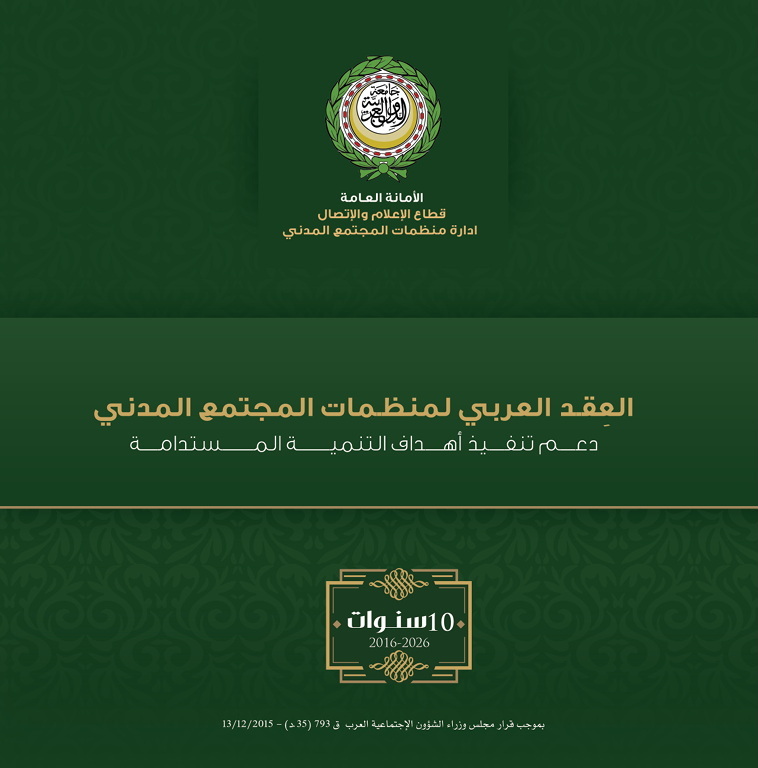
Support for Civil Society Organisations
Out of a firm belief in the essential role of civil society as a key partner in achieving sustainable development, and as a complement to the efforts of governments in addressing the pressing challenges and needs facing Arab societies, the League of Arab States and its member states have taken significant steps to enhance the involvement of civil society in national and regional development agendas.
In this context, the League of Arab States launched the landmark initiative The Arab Decade of Civil Society Organisations (2016–2026). This pioneering document underscores the recognition of civil society organisations (CSOs) as vital actors in the development process. It aims to strengthen the institutional capacities of CSOs across the Arab region, promote effective partnership between civil society and governments in the implementation of the 2030 Sustainable Development Goals (SDGs), foster collaborative regional and international initiatives that position the Arab region prominently on global development agendas, facilitate the exchange of expertise and best practices among governments, regional governmental and non-governmental organisations, international civil society networks, and international organisations, and encourage the active participation of CSOs in public policy-making, particularly in areas related to social development, economic inclusion, environmental sustainability, and human rights.
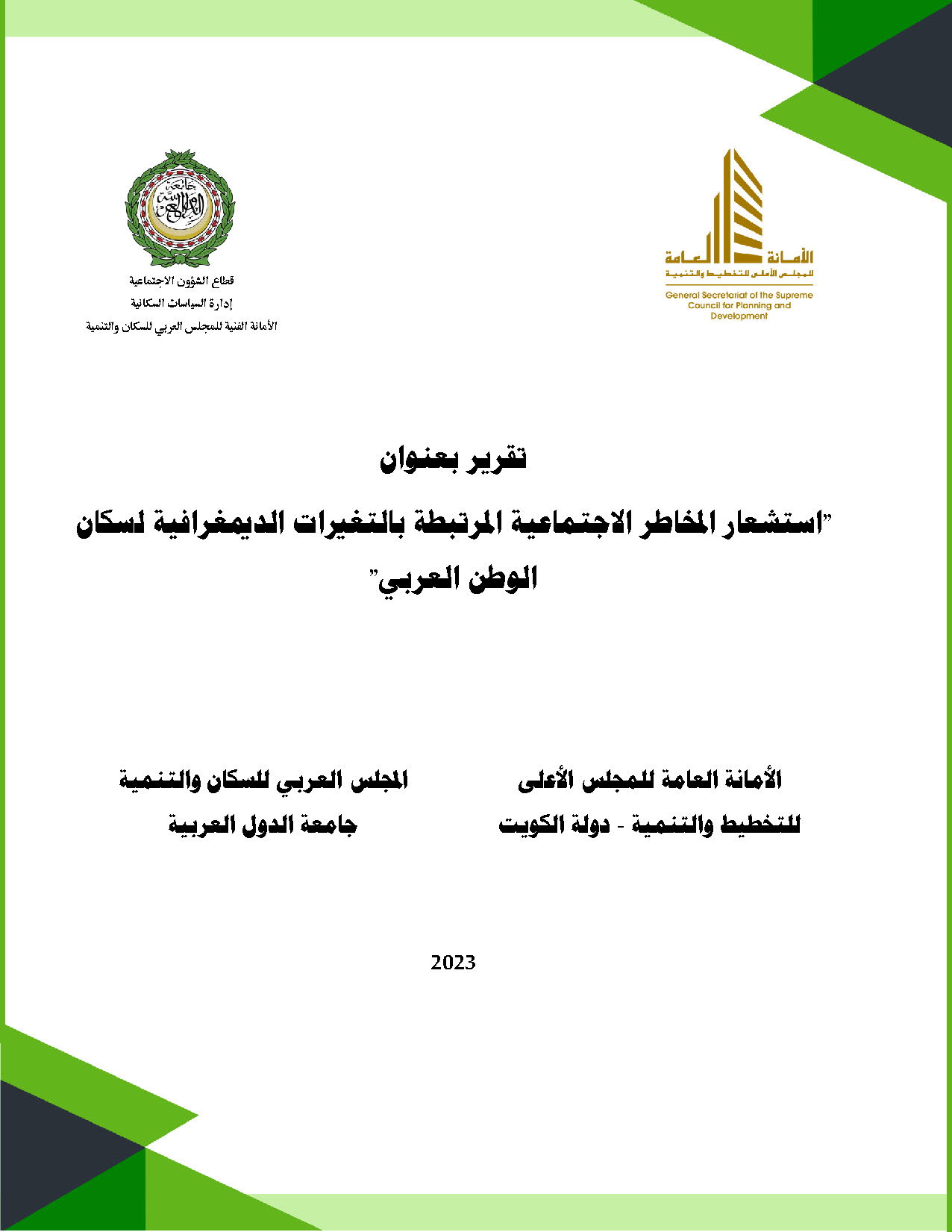
In the Field of Population Policies
In response to the growing challenges and complexities of population dynamics in the Arab region, and in recognition of the importance of coordinating policies and sharing experiences among Arab countries, the Council of the League of Arab States approved in 2019 the establishment of the Arab Council for Population and Development—a regional counterpart to the United Nations Commission on Population and Development.
This Council serves as a pivotal platform for institutionalising joint Arab action in the field of population and development. Its primary objectives include developing a unified Arab population policy and strategy that reflects regional priorities and responds to national needs, harmonising Arab positions on population issues at international forums and strengthening the voice of the region in global debates, and enhancing cooperation, coordination, and knowledge exchange among Arab countries in the field of demographic studies, planning, and policy formulation.
Notable achievements of the Arab Council for Population and Development include facilitating the exchange of population data on expatriates among Arab countries. This decision affirms the urgent need to address the data gap that varies across countries in the region, acknowledging its essential role in evidence-based policymaking, setting developmental priorities, and optimising the allocation of resources.
Other achievements include integrating reproductive health into the Women, Peace, and Security Agenda. This critical step recognises the severe impacts of armed conflicts and displacement on women and girls, and works to ensure that their reproductive health needs are addressed in conflict-affected and post-conflict settings. The initiative aligns with international frameworks and reaffirms the region's commitment to gender-sensitive population policies.
Launching the Arab Region Population Excellence Award (held biennially) is another achievement. This award aims to highlight and celebrate pioneering initiatives and best practices in the Arab region that address population challenges and link them to development goals. By showcasing successful models, the award encourages knowledge transfer, inspires innovation, and strengthens the Arab region's collective capacity to manage population issues effectively.
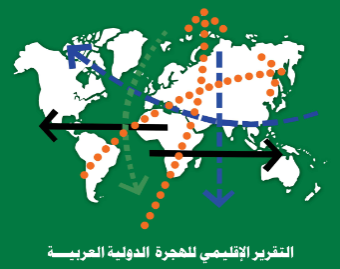
In the Field of Refugee, Diaspora, and Migration Affairs
The League of Arab States has placed great importance on addressing the complex challenges of migration, asylum, and diaspora engagement in the Arab region. These efforts are grounded in the principles of international cooperation, human rights, and the pursuit of sustainable solutions that reflect Arab realities and priorities.
To that end, the General Secretariat of the League of Arab States, in cooperation with United Nations specialised agencies, established the Working Group on International Migration in the Arab Region in 2013 under the umbrella of the Regional Coordination Mechanism between the UN system and the League. In 2020, this working group evolved into the Coalition on Migration Issues in the Arab Region, aiming to enhance coordination and synergy among stakeholders, prevent duplication of migration-related efforts, and promote a unified and coherent migration narrative across the region.
Key mechanisms and achievements include the Arab Regional Consultative Process on Migration and Asylum (2014). Endorsed by the Council of the League of Arab States, the forum enables member states to exchange views, strengthen cooperation, and develop a unified Arab stance on issues of migration and asylum, ensuring that Arab perspectives are effectively represented in international fora.
Other mechanisms include the African-Arab Technical Coordination Committee on Migration. Established following the Third Arab-African Summit held in Kuwait in 2013, this committee deepens Arab-African cooperation on migration issues. Its objectives include raising awareness about the risks of irregular migration, promoting safe, orderly, and legal migration, and safeguarding the rights of migrants in both African Union and League member states.
The Arab-European Migration Dialogue is a joint working group created between Arab and European partners within the framework of the Arab-European Strategic Dialogue, focusing on enhancing coordination on migration-related challenges, facilitating exchange on best practices and policy frameworks, and strengthening collaboration through ministerial-level meetings and structured dialogue.
Recognizing the critical role of Arab expatriates in enriching development and innovation across the region, the General Secretariat of the League of Arab States has worked to strengthen ties with Arab communities abroad through landmark initiatives such as the Conference of Arab Expatriates (Cairo, December 2012) held under the theme "When Arab Minds Integrate", and the First Conference of Arab Expatriates: A Bridge for Communication (Cairo, 4-6 December 2010).
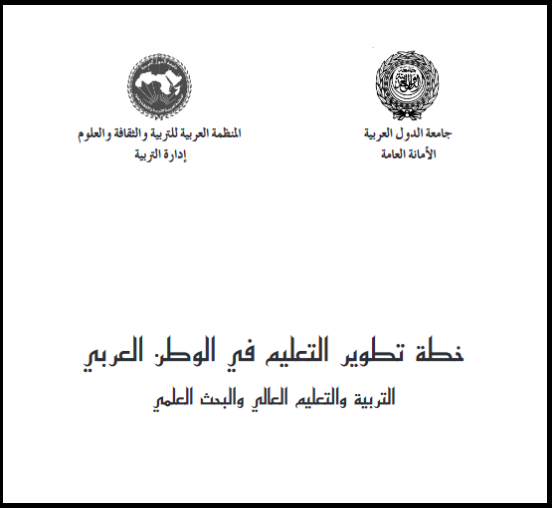
In the Field of Education and Scientific Research
The Plan for Developing Education in the Arab World (2008 - Damascus Summit): Adopted to advance education as a fundamental pillar of development, this plan aims to enhance educational systems across Arab countries. It stresses education as a key factor in achieving peace and strengthening national security, shaping a more prosperous and stable future for the Arab world.
The Arab Strategy for Scientific, Technological, and Innovation Research (2010 - Sirte Summit): This strategy, adopted during the 2010 Sirte Summit, seeks to advance scientific and technological research and innovation across Arab countries. The goal is to create a unified vision that connects scientific research to economic development, encouraging innovation and aligning it with the needs of the region's development goals.
The Arab Literacy Decade (2015-2024 - Sharm El-Sheikh Summit): The 2015 Summit saw the adoption of the Arab Literacy Decade, a ten-year initiative aimed at significantly reducing illiteracy across the Arab world, improving access to quality education, and enhancing literacy rates for all age groups.
Support for Older Persons (2015-2019): In response to the social and health rights of older persons, the Council of Arab Health Ministers approved a study in 2015 that led to the creation of the Arab Strategy for Older Persons (2019-2029). This strategy focuses on improving the quality of life, healthcare access, and social protections for older persons in Arab countries.
Development of Technical and Vocational Education (2019 - Beirut Summit): The Arab Economic and Social Development Summit in Beirut (2019) adopted a comprehensive Plan for the Development of Technical and Vocational Education. This plan aims to better align technical and vocational education with labour market needs, ensuring that the skills taught are relevant and applicable. It also includes mechanisms for the implementation and monitoring of these programmes, ensuring their success and sustainability.
Education for Return Initiative (2019 - Jordan): The Education for Return initiative was launched in Jordan in 2019 to support refugees and their host countries. The initiative focuses on ensuring the protection of refugees' right to education, facilitating their integration into the educational system, and providing necessary resources to sustain their education, especially in the context of displacement.
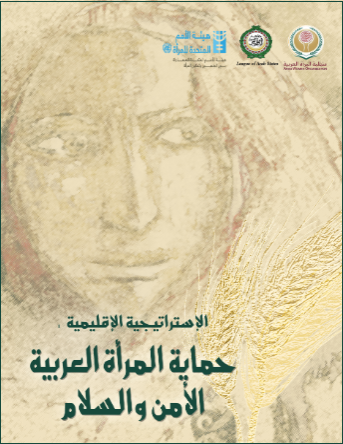
In the Field of Supporting Arab Women
Arab Strategy on Arab Women, Peace, and Security (2015, Updated in 2023): Initially adopted in 2015, this strategy focuses on ensuring the active participation of women in peace processes and decision-making at all levels. In 2023, the strategy was updated to reflect the evolving political, social, and economic conditions in the Arab region, particularly in light of the challenges that threaten women's human security.
Arab Strategy for Prevention and Response to Combat Violence in Refugee Settings (2021): Adopted in March 2021, this strategy addresses violence against women and girls in refugee settings, particularly sexual violence. It provides an Arab framework to support member states in protecting refugee women from violence by enhancing prevention, protection, and response measures, while promoting the participation of women and girls in decision-making processes.
Arab Declaration on Combating Violence against Women and Girls (2022): In 2022, the League of Arab States issued a declaration aimed at combating all forms of violence against women and girls. This declaration reaffirms the League's commitment to ending violence against women and promoting their rights across the Arab region.
Strategic Framework for the Emergency Committee for the Protection of Women During Armed Conflicts (2023): The General Secretariat launched this framework in 2023 to protect women during armed conflicts in the Arab region. The framework aims to establish rapid response mechanisms and provide legal and psychosocial support for women affected by conflict.
Regional Programme for the Economic and Social Empowerment of Arab Women (2023): This strategic framework focuses on six key areas of empowerment: three in economic empowerment and three in social and cultural empowerment. The programme aims to support women economically, address challenges in the labour market, and ensure equal opportunities in social and cultural spheres, particularly in light of the findings from the Arab Women's Development Agenda.
Pink Wallet Initiative (2019): Launched in 2019, this regional initiative focuses on the health of Arab women, particularly regarding breast and cervical cancer. It addresses the social, economic, psychological, and health challenges women face while supporting those coping with these conditions.
Emergency Committee for the Protection of Women in Armed Conflicts (2015): As part of the League's efforts to safeguard women in conflict zones, this committee was formed in response to recommendations from the Arab Women's Committee. It works to address the specific vulnerabilities of women during armed conflicts and provide a platform for swift and effective interventions.
Arab Network for Women Peace Mediators (2020): In 2020, the League of Arab States established this network as part of its broader efforts to empower women in peace mediation and diplomatic initiatives. The network comprises female ambassadors and diplomats, playing a key role in peacebuilding efforts and contributing to international peace and security.
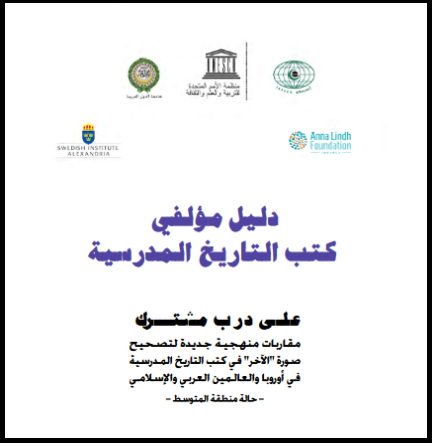
In the Field of Culture and Preserving Arab Identity
The League of Arab States has long recognised the essential role that culture plays in shaping the Arab world's identity, enhancing unity, and promoting intellectual and cultural convergence among its member states. Since its establishment, the League has asserted cultural solidarity as a fundamental component of its mission. Over the years, a number of initiatives have been launched to preserve and promote Arab culture, heritage, and identity.
Cultural Treaty between the Members of the League of Arab States (1945):
In the first year of the League's founding, the member states issued the Cultural Treaty between the Members of the League of Arab States (1945) which remains the first contractual solidarity document adopted by the League. The treaty underscores the importance of culture in fostering intellectual convergence and spiritual harmony among the Arab people, as well as spreading education and raising the cultural level of their societies. This foundational document laid the groundwork for further cultural collaboration in the Arab region.
International Committee for the Preservation of the Human Historical Heritage (2015): In response to the growing need to protect and preserve Arab heritage, the League, in collaboration with various organisations, established the International Committee for the Preservation of the Human Historical Heritage. This committee is composed of organisations such as the Arab League Educational, Cultural and Scientific Organization (ALECSO), UNESCO, the Arab Parliament, the Union of Arab Archaeologists, and other institutions. Its purpose is to safeguard and promote Arab cultural and historical heritage, including coordinating efforts to protect heritage sites across the region.
Arabic Language Advancement Strategy (2018): One of the key initiatives aimed at preserving Arab identity is the strategy for the advancement of the Arabic language, approved in 2018 during the 21st session of the Conference of Ministers Responsible for Cultural Affairs in the Arab World. The strategy, titled "Empowering the Arabic Language: A Symbol of Our Identity and a Tool for Our Development," seeks to develop a unified policy for the Arabic language across member states. This initiative aims to ensure the continued vitality of the Arabic language as a central element of Arab identity and culture while enhancing its role in development and modern education.
Committee of Experts for the Advancement of the Arabic Language: In parallel with the Arabic language strategy, a committee of experts and specialists from various Arab countries was formed in October 2018 to develop a comprehensive policy for promoting the Arabic language. This committee includes representatives from Jordan, Iraq, Libya, Egypt, Saudi Arabia, Morocco, Kuwait, and several other institutions dedicated to the advancement of the Arabic language, such as the Arab Institute for Research and Studies, ALECSO, and civil society organisations.
In the Field of Social Field Studies and Surveys
The League of Arab States has established comprehensive statistical databases across a wide array of sectors, including population, labour force, health, education, agriculture, transportation, energy, and industry. These databases serve as vital resources for developing informed policies and strategies at the regional level.
Key initiatives and developments include:
Development of Unified Arab Framework for Sustainable Development Indicators (Economic, Social, and Environmental): The League of Arab States has made significant strides in developing a unified framework for sustainable development indicators. This framework spans the three main dimensions of sustainable development—economic, social, and environmental. Approved by the Permanent Technical Committee for Statistics, it represents the minimum standard of data production required across Arab countries and serves as the foundation for tracking progress towards the Sustainable Development Goals (SDGs). The framework is continually updated to reflect emerging challenges and objectives in sustainable development.
Collaboration with Arab Statistical Agencies and International Organisations: The League works closely with Arab statistical agencies, as well as regional and international organizations, such as the United Nations Economic and Social Commission for Western Asia (ESCWA), to improve the quality and accessibility of statistical data. This collaboration includes organising joint training courses and workshops designed to enhance the efficiency and capacity of staff working in Arab statistical agencies. In 2024, approximately 185 participants took part in various workshops covering key statistical topics in economics, society, and demographics.
Focus on Special Topics and In-Depth Analytical Studies: The General Secretariat of the League of Arab States also prepares detailed studies on specific issues that require focused attention. For example, the League is preparing a concept paper for a statistical survey on the impact of internally displaced persons in unstable Arab countries, with the aim of assessing their effects on the economic, social, and demographic characteristics of host countries. This type of study will provide valuable insights to assist in decision-making and the development of long-term plans and responses.
Training and Capacity-Building for Arab Competencies: The League places a strong emphasis on investing in human resources and enhancing the capacity of Arab professionals working in statistical fields. Through its training initiatives, the League aims to equip staff with the necessary skills and knowledge to effectively design, implement, and analyse field surveys. For example, in 2023, the League organised a regional workshop on "Enhancing the Role of Media Professionals in the Field of Data Use and Dissemination of Development Statistical Indicators" in collaboration with the Arab Gulf Programme for Development (AGFUND). This workshop, which involved 45 participants from various Arab countries, focused on building the capacity of media professionals and those involved in collecting and disseminating statistical data.
***
